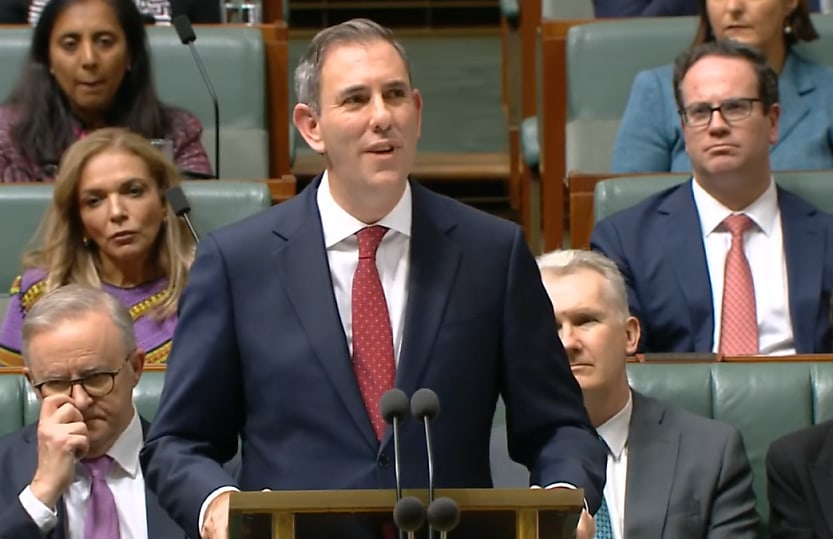Parliamentary pipeline stalling Treasurer’s key tax reforms

The budget has been criticised for a light-on tax reform package and now opposition forces are stalling the progress of the changes it did commit to.
Asked what he made of the tax system’s overreliance on incomes relative to accrued wealth, Treasurer Jim Chalmers said it was a “very important question.”
He defended his twofold approach: cutting income taxes “right up and down the income scale with a bigger emphasis on middle Australia” and making non-income taxes “fairer.”
“Whether it’s for people with very big superannuation balances, whether it’s the PRRT changes which passed the Senate during the week which will mean more tax sooner from offshore gas industries,” he told ABC’s Q+A. In other words, indirect change is still change.
That said, the PRRT tax has come under fire as a blunt tool, while the super tax, announced early last year, has yet to clear the lower house.
Despite successfully passing changes to the PRRT designed to “deliver a fairer return to the Australian community for their natural resources,” Treasury itself estimated in last week’s federal budget that the scheme will deliver $750 million less than previously expected over the five years to 2028.
Treasury has previously chalked up the revised forecast to a downturn in oil prices, though, others have claimed gas companies are being allowed to exploit tax loopholes implied by an unnecessarily complex tax scheme.
“One long running and major problem with the PRRT is its complexity. Over many years the oil and gas industry has run rings around Australian governments, creating tax loopholes,” said the Australia Institute.
“It is clear that the [now passed] changes to the PRRT will make no material difference to the level of revenue that is raised.”
Should the government’s superannuation reform clear parliament, a 30 per cent concessional tax rate will be applied to future earnings on super balances over $3 million and is expected to generate $2 billion in the first year.
The Treasurer said doing away with the tax break would affect only 0.5 per cent of Australians, while the rest of the population would continue to receive “the same generous tax breaks.”
The move to levy the tax on unrealised gains has inspired sharp criticism from the SMSF sector.
Announced in February last year, the bill is stalled in the lower house, led by a Greens initiative to bring the threshold down to $2 million.
Greens Senator Nick McKim said the $3 million threshold is “too high,” and that it “could be lowered to super balances of $2 million and still only hit the wealthiest 1 per cent of accounts.”
Another key pillar of the government's tax agenda, the instant asset write-off scheme, is also stalled in the legislative pipeline. After clearing the House, the Senate voted to increase the threshold to $30,000 and has knocked it back for approval.
The budget extended the $20,000 instant asset write-off scheme for small businesses with a turnover of less than $10 million for another 12 months.
The lower house will have to vote again on the bill, inclusive of the Senate’s amendments which also propose to extend the scheme to businesses with $50 million in annual turnover.
Facing a panel audience grilling at Q+A, the Treasurer defended the federal budget’s modest tax reform agenda as a more sensible alternative to a ground-up overhaul.
“There are two ways to about [tax reform]. There is a big bang change – blow up the system and rebuild it – [but] the way I go about these kinds of things is more methodical. Making sensible changes and bedding them down.”






